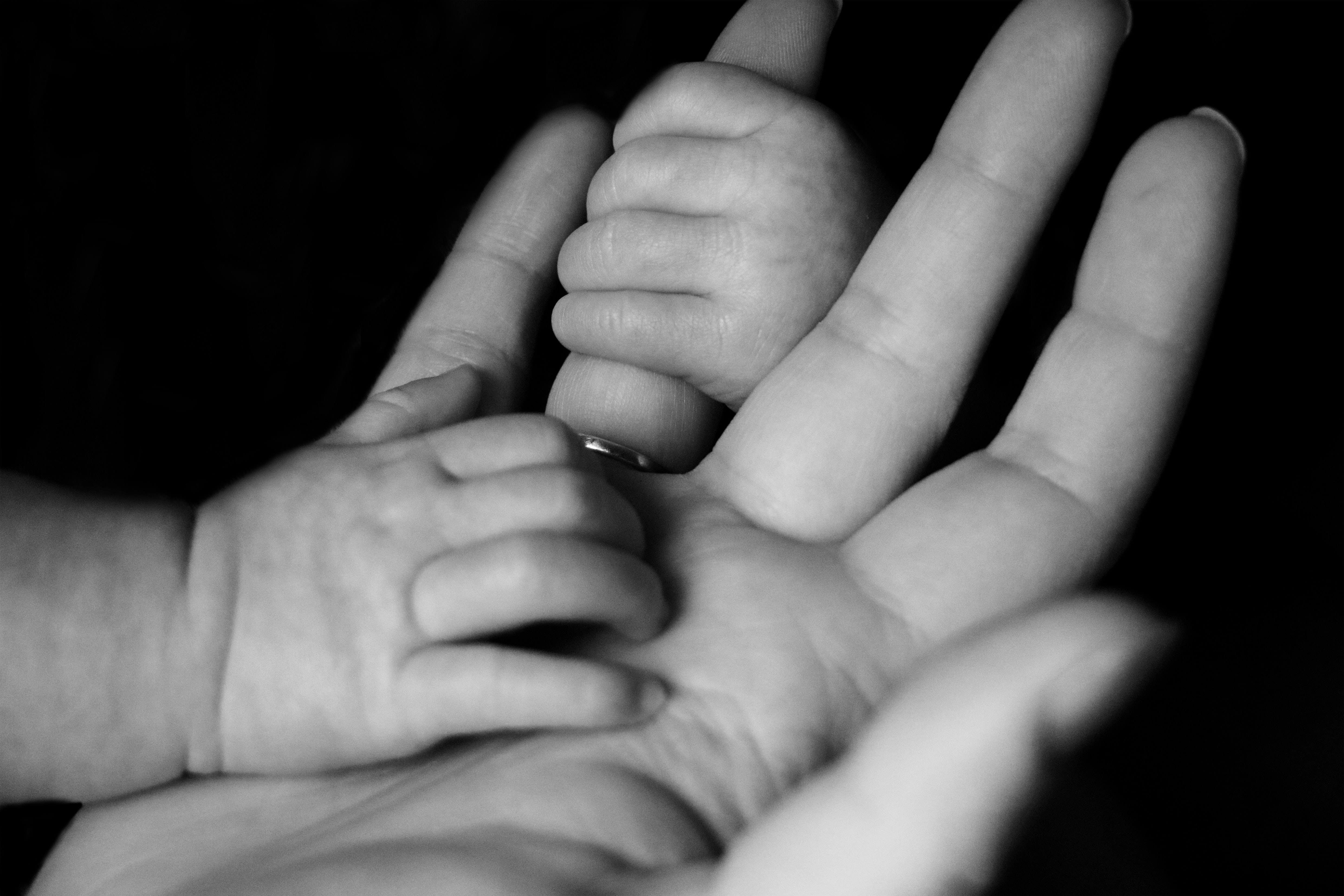
by rossanahead | Dec 3, 2011 | career, woman
By Leslie Lee
A few years ago, I made the monumental decision to leave Manila and carve out a new life in another country, thinking—just like millions of other OFWs—that I would earn more than what I was getting in my previous job. And I did: My salary rivaled that of a regional manager’s in a multinational corporation back home. “I’m rich,” I thought, while staring at the numbers printed on my pay slip.
There were plenty of reasons behind that decision, and one of them was that I was sick of living in third-world Philippines. I wanted to experience life in a more progressive country. I longed for first-world conveniences. I wanted to live in a country one would be proud to call home.
Then the universe hit me in the face with a huge serving of humble pie to make me realize just how superficial and simply wrong I was.
I was at the Philippine Embassy to register as an Overseas Filipino Worker. As I was filling up some forms, I noticed that the guy next to me kept glancing at my papers, probably checking to see if he had filled up his own forms right, too. He seemed so anxious and unsure that I took pity on him and started chatting him up.
The Filipino I spoke to used to be a government employee from Cavite. Like me, he wanted to seek greener pastures; unlike me, he got a job that was worlds apart from his previous one. He was part of a posh hotel restaurant’s service crew and, even if he was already five months into the job, was still struggling with the locals’ language. Like me, he would be reprimanded whenever he misinterpreted the locals’ English (chicken drumstick is known as “dark part” but “dark” is pronounced as “duck”—thus the confusion); unlike me, he would always swallow his pride and humbly accept the scolding.
To this day, I feel ashamed whenever I remember how I had tried to hide my Filipino identity. When I first stepped into that foreign land, I disguised myself with the other half of my heritage and masqueraded as being from Taiwan, Hong Kong, or mainland China. I spoke with a Valley girl’s accent to belie the fact that I am a Filipino.
Hearing tale after tale of Pinoys being discriminated—from the domestic helper to the fast food service crew to the vice-president of a bank—broke my heart. Regardless of rank, as soon as we are introduced as Filipino or from the Philippines, the tenor of their voices and the look on their faces change. Because of the color of our skin, the way we speak English, and our inherent docility, we get bullied and belittled. For most of them, being Filipino was something to be sneered at.
That encounter in the embassy was truly an eye-opener. Why bother to keep up this pretense? What was so shameful about being a humble, modest, cheerful, hard-working, and multi-tasking Filipino? Without our community, who will take care of their children, clean their house, wash the dishes, and help ensure that their household is running smoothly? Who will process their payment in the grocery store, assist them in finding the right shoe or shirt size, and serve them dinner?
As I bid farewell to my fellow countryman at the subway station, a thought popped into my head: I was not meant to seek greener pastures, but to realize that the greenest pasture is the one you were born and bred in. I understand now that to conquer this colonial mentality, and consequently change the way others view us, I have to remain true to my roots, and be proud of my heritage.
Photo by Helen Stegney on Unsplash

by rossanahead | Nov 27, 2011 | children, Education, woman
By Julie Javellana-Santos
I just attended the alumni homecoming of my high school. It’s been almost 31 years since I left that school. And my classmates and I were nostalgic about how the school looked different, but was somehow still the same.
The chairs in the school auditorium were still the same steel folding chairs we sat on during our graduation, albeit repainted several times over. The drinking fountain where we would satisfy our thirst with lukewarm water on hot days was still there, down to the yellowing tiles and antiquated taps. No mineral water or filtered water for us then—just plain old ‘Nawasa (National Waterworks and Sewerage Authority) juice’ as we called it.
The girls I grew up with were different, though. Many had put on a pound here and there. On the contrary, others had lost weight and were positively scrawny. Still others proudly sported brand new nose jobs.
Through the years, there would be times when I’d bump into someone who said, “I know your face, I just can’t remember your name. But it’s here somewhere.” I guess the popularity of caesarian births and general anesthesia was as much to blame for this forgetfulness as simple old age.
Listening to my classmates criticize the program, though, I guess not much had changed. Many times before, we would gather for a program in that very same auditorium, on those very same chairs, and nitpick over the order of the day. Closing my eyes, I could imagine those same girls in blue and white uniforms, wearing standard black shoes and bored expressions. The voices around me were the same voices back in high school. The criticisms were the same: the program was boring, her skirt was too short, the food not good …
And yet, everything was different.
The classrooms across the yard are now of a different color. Where once a single row of classrooms stood, there’s now a four-storey building. Fences were all around—not just wooden, decorative ones but bars, preventing the wayward child from leaving the premises and strangers from entering the grounds.
Most of all, the girls were no longer young students, but familiar faces sporting monumental eyebags, a couple of pounds, and prominent noses.
Everything had changed, but it seemed to be for the better. The classrooms now had LCD projectors, the school grotto was more orderly and freshly landscaped, the school piano had been refurbished, the auditorium’s comfort rooms had been renovated… all courtesy of the school’s generous alumni. Hopefully, the improvements would not end this year. Hopefully, there would be more next year.
The school may have changed a lot since I was there, but what hasn’t changed was how studying in those rooms helped me become the person that I am. And that is a gift that I would always treasure.
Photo by Nathan Dumlao on Unsplash

by rossanahead | Nov 24, 2011 | children, family, grandparenting, Jing Lejano, parenting, woman
By Jing Lejano
Baby S wasn’t feeling well the other day. She woke up with a fever and slept the entire morning. When I visited her in the afternoon, all cuddled up in bed with a blanket, she held my arms and said, “Lula, sit.” And so, despite the fact that I was in the middle of deadlines, I sat with Baby S and eventually cuddled up to her until she fell asleep.
A couple of hours later, just before sunset, Baby S was feeling much better. She was able to eat, watch a little TV, and play with my son K. But when it was time for bed, she didn’t want to leave our house. She insisted on going upstairs with Lula. And so we climbed up the stairs to my room, she with her milk and her “pampin” (her nappies, which is her security blanket of sorts) and me with my book and a glass of water.
We lay on the bed together, she with her arms around a stuffed toy tiger and me with my arms around her. We were just in bed, enjoying each other’s silent company.
I’ve done this very thing, maybe a million times before—with my daughter E, when her playmate pushed her on the balustrade and had to have a head wound stitched; with my son F, when he had another bout with bronchitis; with my son S, when he was generous enough to give his vacation slot to his younger brother; and with my youngest son K, when he had another one of his scary dreams.
When my daughter E just had Baby S, I remember telling her that I don’t want to do anymore of the taking-care-of-baby stuff. I don’t want to change the diapers. I don’t want to play peek-a-boo. And I don’t want to take care of another sick baby.
Well, guess what? I’ve been doing exactly that. I can’t help it! I’m a mom. I’m a Lula. And I just wouldn’t be true to myself if I don’t cuddle up to dear Baby S. Love is love.
Photo by Liv Bruce on Unsplash

by rossanahead | Nov 19, 2011 | Ruth M. Floresca, woman
By Ruth Manimtim-Floresca
If you are familiar with The Corrs, you probably know their hit song where the lyrics go, “And it really doesn’t matter if we don’t eat, and it really doesn’t matter if we never sleep … ‘cause we are so young now, we are so young, so young, now …”
I could very well identify with those sentiments. There were a lot of times during my college days and after graduation when I also felt invulnerable. I could spend a whole night talking with friends or walking around the campus under the pouring rain without getting sick. Back then, I could push myself hard and bounce back after just a few hours of rest.
Not anymore. Lately, I’ve been getting a lot of protest from my bones, my muscles, and even my skin! The other day, I interviewed the CEO of a company that carries beauty and wellness products. There, I was offered to have my facial skin analyzed using a high-tech machine that takes photos of one’s face in high definition.
The beauty consultant showed me the pictures one by one using an LED screen. I found myself squirming and grimacing as she started zooming in on each problem area. She said my skin is dehydrated, I have slightly enlarged pores, there are already fine wrinkles around my eyes, and I have lots of pigmentation. She advised me how to prevent the conditions from getting worse and, for the first time, I really paid attention. It’s not every day I get to see all my skin’s imperfections flashed larger than life on a computer monitor! And it was hard not to wonder how bad things could get if I don’t take care of my skin while it can still be saved.
A lot of women won’t acknowledge it but, deep down, we are vain. Admit it; many of us avoid revealing our age when the number goes past 25. We also show a lot of interest when new health and beauty products come out promising to make us look more youthful and give them test runs as much as our budget allows. That’s something most men can’t comprehend but which we, females, understand well. After all, knowing we look presentable draws out that inner confidence that makes our steps lighter and our heads held higher.
Now, I’m trying to pay more attention to what I eat, what activities I engage in, and what products I use on my body. I’m not actually searching for the fountain of youth but I do want to stay healthy inside and out because I’d like to remain strong as long as possible and have many years more with my family. I believe those are good enough reasons to really start living, and not just thinking about, a healthier lifestyle.
Photo by David Hofmann on Unsplash

by rossanahead | Nov 17, 2011 | family, Gina Abuyuan, parenting, travel, woman
By Gina Abuyuan
Writer and editor Alya Honasan takes pride in her annual solo getaways. She’s a diver, and for about a decade now, she embarks on dive trips—Palawan, Palau, Australia—by herself. It’s invigorating, she says. And the feeling of freedom and independence is like no other.
When I was single, I never had the courage to take off the way Alya does, even though I daydreamed about it. Hitch-hiking across the Philippines, setting up a tent alone on a beach, discovering Sagada on my own–I thought about all doing those things, but never had the balls to carry them out. I stand barely five feet, a tad gullible, and sometimes too shy to speak out in case I offend someone (although people close to me are sure to contest that)—not an ideal formula for a solo female traveller.
These days, though—older, tougher, not afraid to tell someone off–I can pretty much hold my own. I’ve travelled to Camarines Norte and Palawan alone, downed drinks in bars alone, and roamed the backstreets of Chiang Mai alone. The latest solo trip I took was the one to Marabut, Samar, for a much needed break after a weighty assignment interviewing farmers affected by climate change in Southern Leyte.
I chose Caluwayan Resort, a three-star resort with four villas and two open cottages fronting the beach. Since I didn’t have the budget to rent a villa (P5,000 a night), I opted for the open cottage—and when I say open, I mean open. It’s a gazebo walled-in by a white canvas tied to the posts. The “door” is a double layered curtain of canvas and gauze. There’s a double bed and a side table. It may sound bare, but it was actually quite comfortable. I felt like I was sleeping in my own room, with the bonus of the sound of waves and natural breeze. Magical.
That said, there are certain things you need to remember if you choose to go on a solo holiday. Here are the most important:
- Make sure your kids, husband or partner, or a close friend knows where you’re going. Show them the web site and give them the contact details. Tell them when you plan to leave, and your ETA back in your hometown.
- Keep your mobile phone on (even if it’s on silent) all the time. If the signal’s wonky (as it is in Samar), inform them so they don’t worry.
- Bring medication if you’ve got a condition that calls for it. I’m asthmatic, so I bring at least two inhalers with me, plus anti-histamines. Inform the restaurant or the cook of any allergies, so they don’t mix any crab or shrimp or lobster (in my case, that is) in your food.
- Bring along a self-defense weapon and know how to use it. This can be a pepper spray, a taser, or a small knife.
- Don’t attract attention. It’s inevitable that a man/men will want to chat you up or be curious on your solo status. I choose not to make eye contact if I sense a man is trying to catch my attention, and I clothe myself in a “leave me alone” aura. I also make it a point to let the receptionist or waiter or boatman know that I’m married (or at least, partnered) and have three children. This is my way of saying, “Yes, people will look for me if I disappear.”
- Don’t get inebriated. No explanation needed.
Some moms may think that this is a little extreme—alone time away, hundreds of kilometers from home, when an hour at the spa can do the trick. There comes certain instances, though, certain valleys in one’s psychological, emotional, and physical health patterns, that can only be cured by a literal change of pace and scenery. Like Alya’s—and if you are so inclined—you can treat yourself to a solo holiday once a year. Let go of the guilt, plan it well, involve the help and understanding of your partner, support group, and kids. Take it from me: you will come back renewed and refreshed. You won’t regret it, and—seeing what good it did Mom–neither will your partner and children.
Photo by averie woodard on Unsplash





